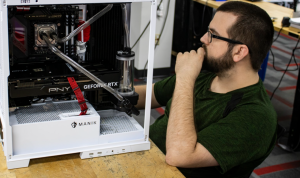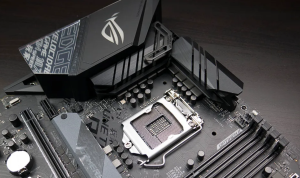How Power Supplies Affect PC Stability and Performance is a critical topic for anyone looking to optimize their computing experience. The power supply unit (PSU) is often overlooked in discussions about PC performance, yet it plays a vital role in ensuring that your system operates smoothly and efficiently. From providing stable voltage to powering demanding components, understanding the intricacies of power supplies can help you troubleshoot issues and enhance your system’s reliability.
With the increasing demand for high-performance gaming and resource-intensive applications, the right power supply is more important than ever. It not only affects the overall functionality of your PC but also influences its longevity and performance under stress. In this exploration, we will delve into how various factors related to power supplies contribute to the stability and performance of your PC.
In today’s fast-paced world, the way we communicate has undergone a remarkable transformation. From face-to-face interactions to digital conversations, the essence of communication remains vital in both personal and professional realms. This article delves into the evolution of communication methods, the importance of effective communication skills, and the emerging trends shaping our future interactions.Historically, communication has been a core human necessity, vital for survival and social bonding.
Ancient humans relied on verbal communication, gestures, and expressions to convey thoughts and emotions. The invention of written language marked a significant milestone, enabling people to record information and share it across distances and generations. From hieroglyphics in ancient Egypt to the invention of the printing press, communication evolved, paving the way for the modern age.With the advent of the internet, communication reached unprecedented heights.
Email, instant messaging, and social media platforms revolutionized how we connect with others. Today, we can communicate with someone halfway across the globe in mere seconds. This immediacy has not only transformed personal relationships but has also reshaped the business landscape. Companies can now reach customers worldwide, fostering a more interconnected global economy.However, this convenience also comes with its challenges.
The rise of digital communication has led to a decline in face-to-face interactions, which are crucial for building strong relationships. Non-verbal cues, such as body language and facial expressions, play a significant role in communication, often conveying more than words alone. In a digital environment, these cues can be lost, resulting in misunderstandings or a lack of emotional depth.Effective communication skills are essential in navigating this evolving landscape.
Whether in personal relationships or professional settings, the ability to articulate thoughts clearly and listen actively can significantly impact outcomes. Practicing empathy and understanding can foster deeper connections, allowing for more meaningful exchanges. Moreover, being aware of one’s tone and body language can enhance the clarity of the message, ensuring that the intended meaning is conveyed.As we look to the future, several emerging trends are set to shape communication further.
One such trend is the rise of artificial intelligence (AI) in communication tools. AI-driven chatbots and virtual assistants are becoming increasingly prevalent, providing businesses with the ability to engage with customers around the clock. These tools can analyze customer interactions, providing insights that can enhance communication strategies.Additionally, the use of video communication has skyrocketed, especially in the wake of the global pandemic.
Platforms like Zoom and Microsoft Teams have become household names, enabling remote work and virtual gatherings. This trend is likely to continue as organizations embrace flexible work environments, highlighting the need for effective virtual communication skills. Mastering the art of presenting oneself on camera, engaging in virtual discussions, and maintaining professionalism in a digital space are now essential skills for the modern professional.Furthermore, the importance of cross-cultural communication is becoming increasingly relevant in our diverse world.

As organizations expand globally, understanding and respecting cultural differences is crucial for effective collaboration. This includes being aware of language barriers, varying communication styles, and different social norms. Emphasizing cultural competence can lead to more successful interactions and a more inclusive workplace environment.In our quest for effective communication, it’s also vital to prioritize mental health and well-being. The pressures of constant connectivity can lead to burnout and anxiety.
Setting boundaries around communication, such as designated ‘do not disturb’ times or digital detox periods, can promote healthier interactions. Additionally, organizations should foster a culture that values mental health, encouraging open conversations about stress and workload management.In conclusion, the evolution of communication is a fascinating journey that continues to unfold. As we navigate the complexities of modern interactions, honing our communication skills, embracing emerging technologies, and fostering cultural understanding will be essential.
By prioritizing these aspects, we can enhance our personal connections and professional relationships, paving the way for a more connected and empathetic world. The future of communication holds endless possibilities, and with thoughtful engagement, we can shape it to benefit everyone.





